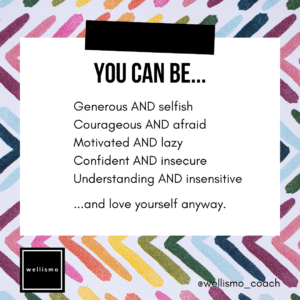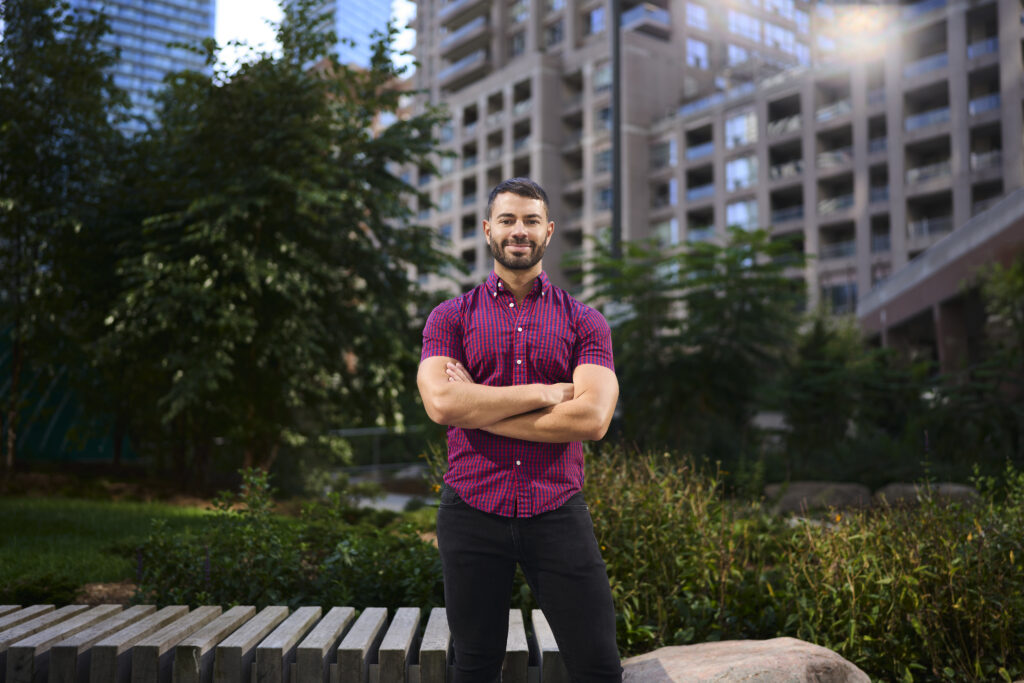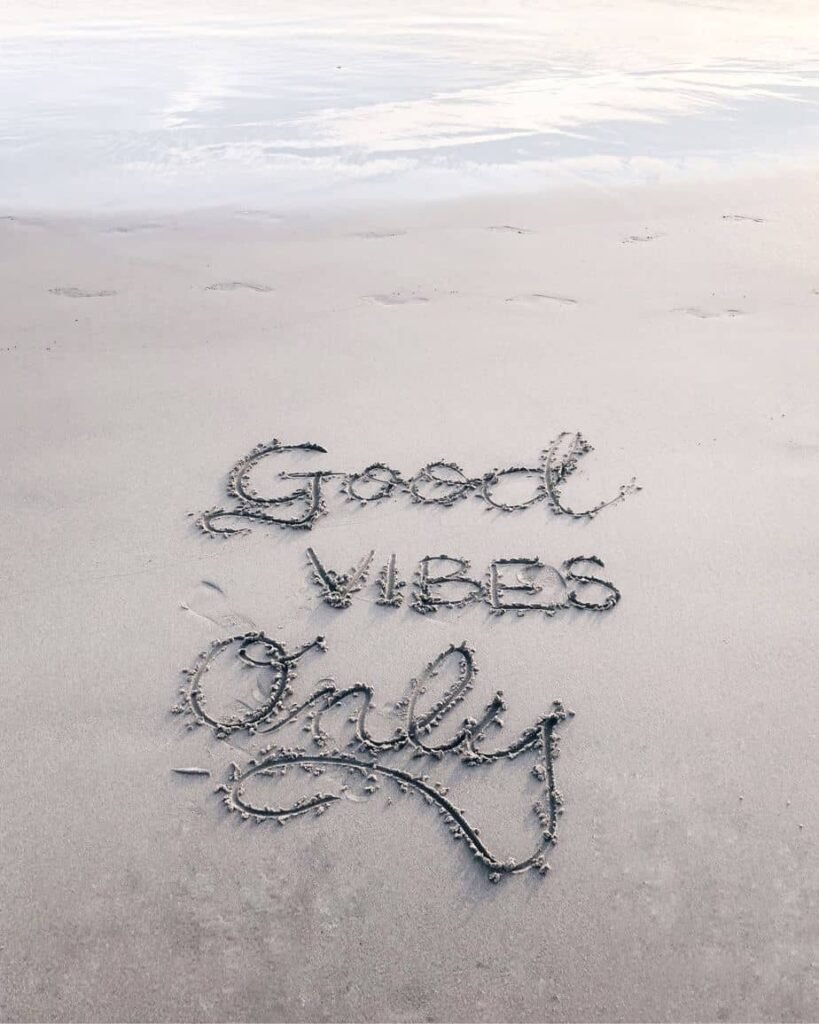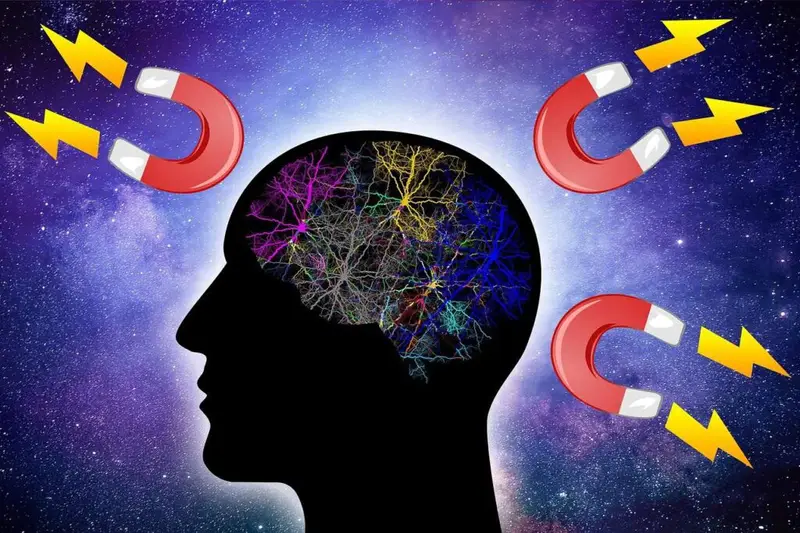As a life and wellness coach, I’ve seen a lot of different people over the years. And over all my time with men and women around the world, I’ve noticed something —the ones who experience the most powerful transformations all say the same thing by the end of our work together: “I learned how to trust myself.”
These transformations are not just to make them feel more confident, but to actually trust their own inner voice.
Imagine it: You learn to become more aware of your needs, and you unapologetically honour those needs; then, you stand behind those decisions no matter what.
Self-Confidence is Great, but Self-Trust is Better
While you’ll definitely feel more self-confident, self-trust it actually slightly different from confidence; here’s how.
Confidence says: “I’ve got this.”
Self-trust says: “Even if I don’t, I’ll be okay.”
Here’s an example: You go into a big event and destined to see someone who has a big positive —or negative— impact on your mind; consider a hottie you’ve been dying to get to know more, or maybe an ex partner who you just don’t want to deal with.
While you may have that confidence to attend the event, do you really have the comfort and dependability of deep personal trust in your emotions, thoughts, and actions?
Self-trust looks so much different than just a great walk or people skills, what this skill really does for us more like this…
When something doesn’t go well in life: Knowing you’ll try again, having the ability to stay kind to yourself, and keeping your momentum always willing to move forward no matter what.
Why? Because you have deep trust in yourself and your abilities.
Why is Self-Trust so Difficult?
Self-trust isn’t something that comes to us instantly, and that’s okay. Every time you exercise self-trust, it will help you get better at it.
Let’s talk about 5 core reasons why people struggle to trust themselves:
- Conditioning: From childhood, many of us are taught to obey authority figures and suppress our instincts. Queer folks, in particular, are socialized to believe that our natural desires are wrong.
- Shame: When being your authentic self led to rejection, bullying, or punishment, you learn to doubt your instincts. Trusting that “inner voice” therefore feels unsafe.
- Perfectionism: People don’t trust themselves because they’re afraid to be wrong. Perfectionism creates a belief that anything less than “flawless” is failure.
- People Pleasing: You learned to prioritize others’ opinions and preferences over your own. Eventually the part of you that asks “What feels right for me?” fades away.
- Lack of Practice: Self-trust is like a muscle. If you haven’t been using it, you haven’t built the strength. The result is you doubt your decisions because you don’t have enough evidence that you can count on yourself.
Understanding why self-trust is so difficult is important.
In fact, by acknowledging that there are influences in your life that impact your inner thoughts and emotions you can begin to create real change —because, the good news is that self-trust is a skill that you can learn.

Unlocking Self-Trust in Your Life
Like any skill, when you set your mind to it and practice, you will get better at it.
One huge important thing to understand about self-trust is you don’t need to reach for perfection, 100%, to feel the difference; every small improvement towards becoming more self-trusting, even just 1%, makes a difference.
I’ve seen this transformation with my clients over and over again. When they start trusting themselves, they:
- Make decisions faster
- Set clear boundaries with others
- Feel grounded, even when life gets messy
- Stop asking for permission to be themselves
- Actually like who they are, even when no one is watching
And these examples are just the tip of the iceberg. As you grow into yourself, deepen your mind, and flex your boundary setting, you’ll really start unlocking the totality of self-trust in your life.
You can start your practice right here. I invite you to ask yourself:
Where in my life am I waiting for someone else to validate what I already know in my heart?
Take 5 minutes, sit with yourself, sit in a comfortable space and write down what comes to mind.
Then, look over your notes; maybe it’s a short list, maybe it’s a long list. Take a minute to sit with what you’ve written down and consider this:
What might shift if in my life if I stopped waiting and trusted myself instead?
If you still find yourself hesitating, one of those five core barriers (in the ‘Why is self-trust so difficult?’ section above) might be getting in the way.
Developing Self-Confidence and Creating Change With Coaching
That’s exactly the kind of work we do in coaching: identifying what’s blocking your self-trust and learning how to move through it.
Whether your gay, straight, queer, or unsure remember that this coaching space is safe for you. Yes, I’m a gay man who has a unique view and connection to the gay community, and I put out a lot of specialty content supporting the gay, bi, and queer community —I work with all identifying genders and sexualities.
One thing about coaching is that it’s really most important for you to feel comfortable and genuinely connect with your coach. When you’re comfortable and commit to opening up with a trusted guide, like me, you’ll find you’re able to open your mind more too, and you’ll also feel more inspired to stay the course.
At Wellismo, you can commit to 3, 6, 9, or 12 sessions, and work towards attainable, tangible goals so that you can actually see the impact of this work in your life. You can learn more about working with me at Wellismo in this guide.
Curious about making real change in your life and developing self-trust, confidence, and personal alignment? Book a free session with me and let’s talk about it.



